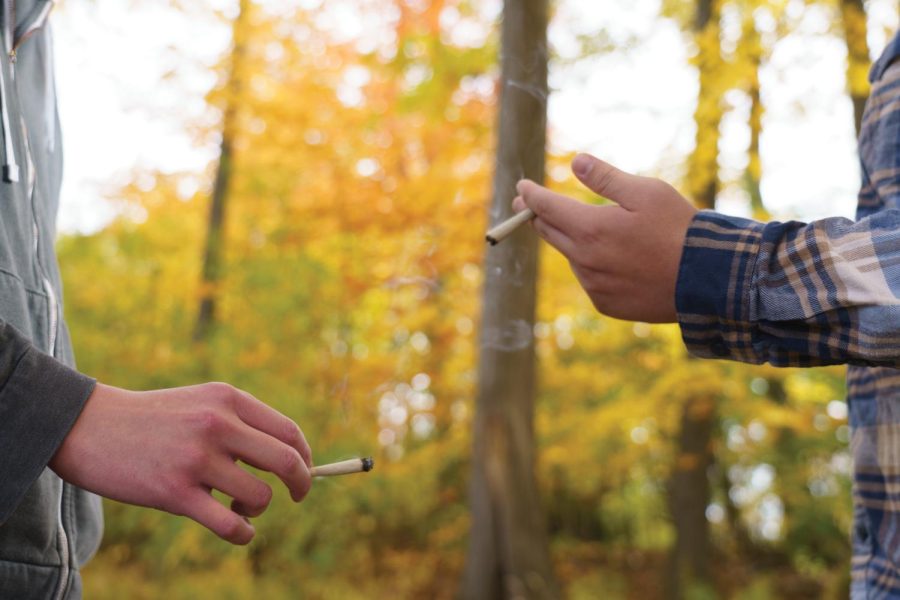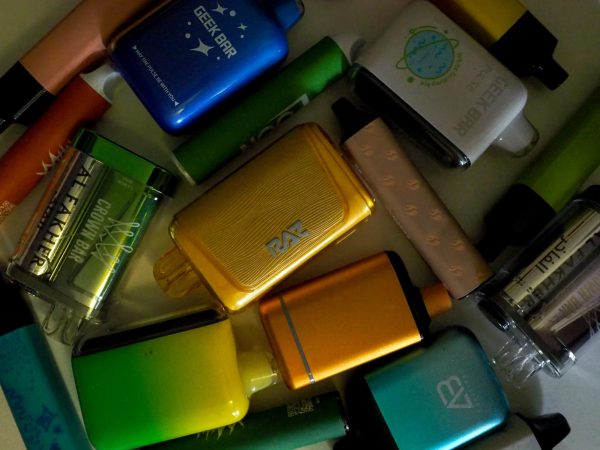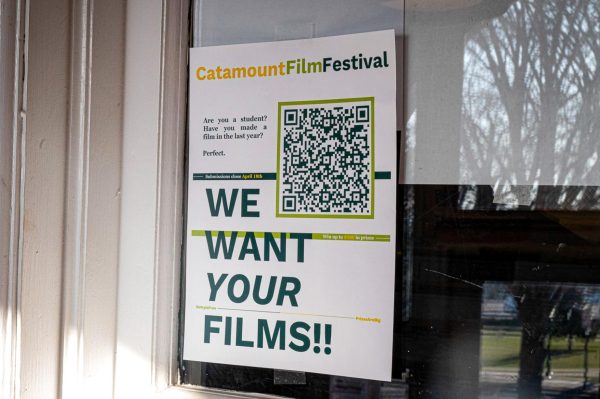Over the counter cannabis: How dispensaries are changing UVM drug culture
Photo illustration by Tyler Nachilly
The majority of under-21 students surveyed are planning to continue buying weed from their local dealers even after turning 21, despite the commercialization of cannabis in Vermont.
Retail cannabis sales began in Vermont for consumers aged 21 and older Oct. 1. On the first day of sales, UVM students and area residents flocked to newly-opened Burlington dispensaries to get in on legal weed.
For some, it was a week-long trend, and for others, an opportunity to permanently escape street weed, which is unregulated by the government.
In a survey conducted by the Cynic, a small number of students over the age of 21 reported they’d be making the switch. Of the 47 survey respondents over the age of 21, only 6.4% reported planning on switching to the legal market.
At the moment, with little competition in the market and with the few dispensaries open being able to charge whatever they want, it seems students seeking to buy bud are planning to stick to their local dealers.
However, with weed culture in Burlington and at UVM subject to change, Tom Fontana, counselor of cannabis at UVM Living Well, offered insight into how he sees the opening of dispensaries impacting campus culture in the future.
“Nothing much has changed because people under 21 aren’t likely to use their fake ID to go downtown and wait in line and pay taxes where they might not even get it,” Fontana said. “It’s all about convenience. I think that’ll change when it’s a more competitive market.”
While the legalization of cannabis is seen as a positive change for many reasons, the retail sale of the drug actually poses new risks to the UVM population. Fontana is worried about the commercialization of cannabis in relation to so many new retailers entering the market, he said.
“The big change that we anticipate is commercialization that brings a greater range of potency in products,” Fontana said. “It’s also not easy to be abstinent around anything on a college campus. It’s hard for people who are using it because cannabis is already a hard substance to figure out the right balance of.”
Thirty businesses in Chittenden County have applied to the Cannabis Control Board for retail licenses as of Sept. 26, according to a Sept. 26 Burlington Free Press article.
With these risks in mind, Fontana mentioned some ways Living Well encourages students to be safe in this era of consumption.
“We try to promote tolerance breaks and some level of reflection,” Fontana said. “Particularly around edibles, knowing dosing size, even just knowing that 5 milligrams is a single dose and you might be able to have two or three doses like you do with alcohol. But you don’t want 10 doses.”
Ceres Collaborative Dispensary opened Oct. 1 at 190 College St., according to a Sept. 29 Newsfile article. It’s a stone’s throw from Church Street and nestled around a record store, a pub and the Patagonia store. The orange and green logo is classy and minimal and it fits right in with its surroundings.
Upon entrance, a cashier stands at a small kiosk decorated with tiny pumpkins to check IDs. The walls are a deep green, adorned with faux vines and grass. Shoppers leave the glass doors with their goods in plain paper bags.
Senior Caroline Currey went to Ceres to see what all the hype was about.
“I was really excited to go to a dispensary, and this one is really nice inside,” Currey said. “The people were so friendly and helpful […] It looks like a jewelry store in the showroom, everything is in glass cases and organized really nicely. Overall I had a great first experience.”
Unfortunately for people seeking to switch to dispensaries, higher prices could be a deterrent. The State of Vermont imposes a 14% tax on recreational cannabis sales, according to the Vermont Department of Taxes.
“I definitely noticed that the prices were high,” Currey said. “I was expecting them to be high, but the tax really makes buying bud there not worth it. I’d definitely go again, but only for the edibles and carts, because you can’t really get them from a dealer.”
Students aged 21 and older that participated in the Cynic survey tended to agree with Currey that the tax on cannabis makes a trip to the dispensary not worth it. Seventy percent of students over 21 cited high prices or taxes as the reason they won’t be making the switch to dispensaries.
Students who can’t go to dispensaries now are already considering whether or not they’ll switch once they’re legally able to.
With the under-21 crowd, the data from the survey conducted by the Cynic shows that the majority of students who can’t buy from dispensaries now plan to when they are of age.
It seems that the underclassmen of UVM are more concerned about the safety of street weed than their older counterparts, with 70.4% of the 65 under-21 students surveyed saying they plan to make the switch for safety-related reasons.
Fentanyl-laced street weed is a concern always present in the conversation around the substance, and out of all 102 Cynic survey participants, 78.2% reported a fear of laced weed as an influence in their decision-making process.
Fontana says there are ways to test for fentanyl in weed purchased off the street.
“The kief from the bottom of the grinder is a testable substance,” Fontana said. “There are fentanyl test strips that you can use with that. You only need a small amount of that to test for a whole ounce. It’s worth testing.”
The opening of dispensaries in Burlington, while exciting, will pose new risks to the UVM community that can be avoided with safe use. Whether or not people will be willing to pay the high prices and taxes permanently instead of buying from a dealer, however, is still yet to be seen.







